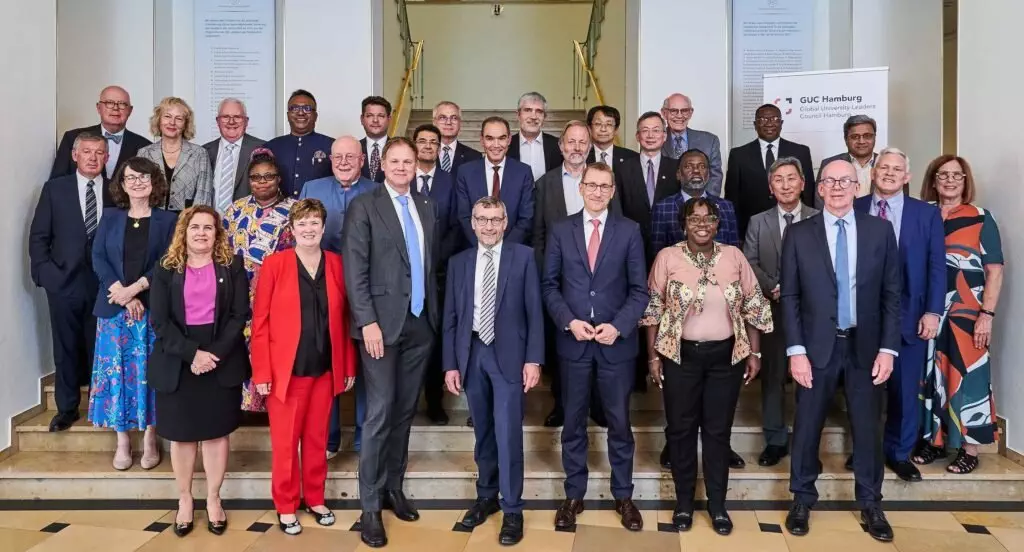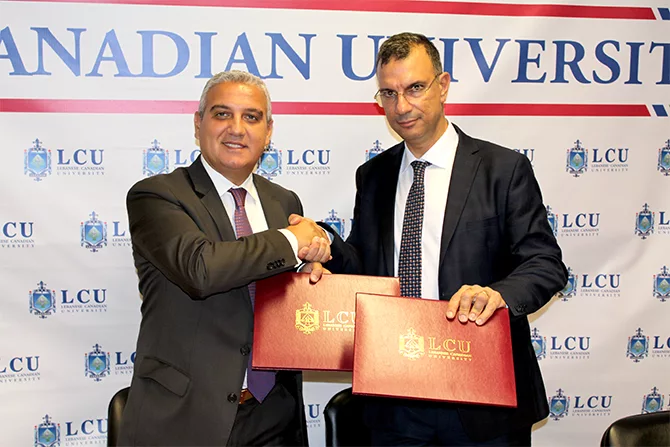Universities have long played an important role in fostering international relations and promoting cultural exchange. In today’s interconnected world, universities are uniquely positioned to project soft power and help bridge the divides between nations. Through academic collaborations, international exchanges, and research programs, universities are helping to build bridges between states and peoples.
Strengthening International Relations Through Education
Education and the pursuit of knowledge is a universal value that transcends borders and cultural differences. Universities have a critical role to play in promoting international understanding and collaboration by providing opportunities for students and scholars to engage with foreign cultures, languages, and traditions. Through these exchanges, students gain a deeper understanding of international issues, while also developing important cross-cultural competencies that are critical for today’s globalized economy.
Moreover, universities provide a unique opportunity for international students to experience a new culture while pursuing their academic goals. This exposure to different perspectives and ways of life can broaden their horizons and help them develop a more nuanced understanding of the world. In turn, these students can serve as ambassadors for their home countries, sharing their experiences and knowledge with others back home.
But the benefits of international education are not limited to students. Faculty members also benefit from international collaborations and research partnerships. By working with colleagues from different countries, they gain new insights and perspectives that can inform their research and teaching. This can lead to groundbreaking discoveries and innovations that benefit society as a whole.
Furthermore, universities are key venues for hosting international conferences and events that bring together leading scholars, researchers, and policymakers from around the world. These events serve as a platform for dialogue and exchange of ideas, which can help to build bridges and foster greater understanding between nations. They also provide an opportunity for participants to network and establish new partnerships, which can lead to further collaborations and joint projects.
In addition, international education can have a positive impact on the local community. International students and scholars often bring new perspectives and ideas, which can enrich the cultural and intellectual life of the university and the surrounding area. They also contribute to the local economy by spending money on housing, food, and other necessities.
In conclusion, international education is a powerful tool for promoting international understanding and collaboration. Universities play a critical role in providing opportunities for students and scholars to engage with foreign cultures and traditions, and in hosting international events that bring together leading thinkers from around the world. By strengthening international relations through education, we can build a more peaceful, prosperous, and interconnected world.
Examining the Impact of Universities in International Diplomacy
The impact of universities on international diplomacy cannot be overstated. This is particularly true in the areas of science and technology where research collaborations between universities across national borders have led to numerous breakthroughs that have advanced our collective understanding and improved our lives. Indeed, the value of academic research in fields such as medicine, engineering, and the social sciences cannot be understated.

In the field of medicine, for example, universities are at the forefront of research into new treatments and cures for diseases that afflict people all over the world. Through international collaborations, universities are able to pool resources and expertise to tackle some of the most pressing health challenges facing humanity. From developing new vaccines to finding more effective treatments for cancer and other diseases, universities are making a significant contribution to global health.
Similarly, in the field of engineering, universities are driving innovation and technological progress. Through research partnerships with industry and government, universities are developing new materials, processes, and technologies that are transforming the way we live and work. From renewable energy to advanced manufacturing, universities are helping to build a more sustainable and prosperous future for all.
Moreover, universities are often the vanguard of social and political change. Through research and advocacy, universities are helping to shape public opinion and bring about social and political change that can have far-reaching and long-lasting impacts. From fighting for social justice and human rights to promoting environmental sustainability and combating climate change, universities are often at the forefront of efforts to advance the common good.
For example, universities have played a key role in the global movement for climate action. Through research into the causes and impacts of climate change, universities have helped to build the scientific consensus that underpins international efforts to reduce greenhouse gas emissions and limit global warming. Universities have also been instrumental in advocating for policy changes and promoting public awareness of the urgent need for action on climate change.
Similarly, universities have been at the forefront of efforts to promote social justice and human rights. Through research and advocacy, universities have helped to expose and challenge systemic inequalities and injustices, and to promote greater equality and social inclusion. From the civil rights movement to the #MeToo movement, universities have played a vital role in driving social change and progress.
In conclusion, universities are a vital force for good in international diplomacy. Through research, innovation, and advocacy, universities are helping to build a more prosperous, sustainable, and just world for all. As we face the many challenges of the 21st century, universities will continue to play a critical role in shaping our collective future.
How University Leaders are Shaping Global Relationships
University leaders are playing an increasingly important role in shaping global relationships. As the world becomes more interconnected, the role of academic leaders in fostering international partnerships and collaborations is becoming more important than ever. University presidents, provosts, and deans are key players in promoting academic collaborations that can lead to significant breakthroughs and advancements in research.

For example, many universities have established partnerships with institutions in other countries to facilitate research collaborations and student exchanges. These partnerships can provide students with valuable opportunities to learn about other cultures and gain international experience, while also fostering important research collaborations that can lead to new discoveries and innovations.
Academic leaders are also instrumental in promoting international dialogue and understanding. Through conferences, seminars, and other events, they bring together scholars and experts from different countries and disciplines to exchange ideas and explore solutions to global challenges.
Furthermore, academic leaders are often called upon to advise governments and policymakers on a range of issues. For instance, they can provide insights into the economic impact of international trade agreements, or offer guidance on how to address human rights abuses in different parts of the world. Their expertise and intellectual rigor can help to shape policy decisions that benefit societies across the globe and promote greater understanding and cooperation between nations.
Moreover, university leaders can play a critical role in promoting diversity and inclusion on campus and in the wider community. They can create initiatives and programs that celebrate different cultures and perspectives, and work to ensure that all students feel welcome and supported.
In conclusion, the role of university leaders in shaping global relationships cannot be overstated. Through their work in promoting academic collaborations, facilitating international dialogue, and advising policymakers, they are helping to build a more interconnected, understanding, and prosperous world.
One of the most significant benefits of university exchanges is the opportunity for students to expand their horizons and gain a global perspective. By studying in a foreign country, students are exposed to new ways of thinking, different cultural practices, and unique approaches to education. This can be a transformative experience that helps students to develop a deeper understanding of the world and their place in it.
Beyond the personal benefits, university exchanges can also have a profound impact on the institutions that participate in them. By collaborating with foreign universities, faculty members can share knowledge and expertise, and develop new research projects that have the potential to make a significant impact on society. These collaborations can also help to raise the profile of participating institutions, and attract new students and faculty from around the world.
Another important benefit of university exchanges is the opportunity for students to learn new languages and develop intercultural communication skills. In today’s globalized economy, these skills are highly valued by employers, and can help to open up new career opportunities. By immersing themselves in a foreign culture, students can also develop a greater appreciation for diversity and learn to work effectively with people from different backgrounds.
Finally, university exchanges can help to build long-lasting international relationships that can have a positive impact on diplomacy and global cooperation. By fostering greater cultural understanding and collaboration, these programs can help to break down barriers and promote peace and prosperity around the world.
In conclusion, university exchanges are a vital component of the internationalization strategies of many universities around the world. By providing students and faculty with the opportunity to study, teach, and conduct research in foreign countries, these programs can help to foster greater cultural understanding, develop important research collaborations, and build long-lasting international relationships. As such, they are an important investment in the future of higher education and global cooperation.
One way in which universities are projecting soft power is through their international student programs. Many universities have established partnerships with institutions in other countries to facilitate student exchanges, allowing students to study abroad for a semester or year. This not only exposes students to new cultures and ways of thinking, but also helps to build bridges between countries and promote mutual understanding.
In addition, universities are increasingly collaborating on research projects with other institutions around the world. These partnerships not only produce new knowledge and advancements in various fields, but also foster cooperation and goodwill between countries. By working together on important global issues such as climate change, disease prevention, and poverty reduction, universities are helping to create a more peaceful and prosperous world.
Furthermore, universities are often centers of cultural activity, hosting events and performances that showcase the arts and traditions of their home countries. This cultural exchange helps to promote a deeper understanding and appreciation of different cultures, and can help to break down stereotypes and prejudices.
Finally, universities are also playing a role in promoting sustainable development and environmental stewardship. Many universities have established sustainability initiatives and are working to reduce their carbon footprint through energy conservation, recycling, and other measures. By leading by example and promoting sustainable practices, universities are helping to create a more environmentally conscious and responsible world.
All of these efforts by universities to project soft power contribute to a more interconnected and peaceful world, where countries and cultures can work together to address common challenges and promote mutual understanding and cooperation.
The Power of University Diplomacy in an Increasingly Globalized World
University diplomacy is a powerful tool for building relationships between nations and promoting greater understanding and cooperation. Through academic exchanges, research collaborations, and cultural events, universities are helping to break down barriers and bring people together from across the globe.

One of the most powerful aspects of university diplomacy is its ability to connect people at the grassroots level. By providing opportunities for students and faculty to interact with their international counterparts, universities are helping to create a more interconnected world that is built on mutual respect, understanding, and cooperation.
Leveraging Academic Expertise for Diplomacy
Academic expertise can be a powerful tool for diplomacy. By leveraging the expertise of scholars and researchers, universities can help to inform policy decisions and shape public opinion on a range of issues. From climate change and migration to trade and human rights, academic experts can provide valuable insights and analysis that can inform policy decisions and promote greater cooperation between nations.
Furthermore, universities can also help to prevent conflicts and foster peace by providing a forum for dialogue and exchange of ideas. By bringing together academics, policymakers, and civil society actors, universities can help to build bridges and promote understanding between nations that might otherwise be at odds.
Assessing the Impact of University Diplomacy on International Relations
The impact of university diplomacy on international relations is difficult to measure, but there is no doubt that it has had a significant impact on the world. Through academic collaborations, cultural exchanges, and research partnerships, universities are helping to build bridges between nations and promote greater understanding and cooperation.
Moreover, by providing opportunities for students and scholars to engage with foreign cultures and perspectives, universities are helping to foster a new generation of global citizens who are equipped with the skills, knowledge, and competencies to succeed in today’s interconnected world.
Conclusion
In conclusion, universities have a critical role to play in fostering international relations and projecting soft power. Through academic exchanges, research collaborations, and cultural events, universities are breaking down barriers and building bridges between nations.
While the impact of university diplomacy may be difficult to measure, there can be little doubt that it is having a profound impact on the world. By promoting greater understanding and cooperation, universities are helping to create a more interconnected, peaceful, and prosperous world for all.


